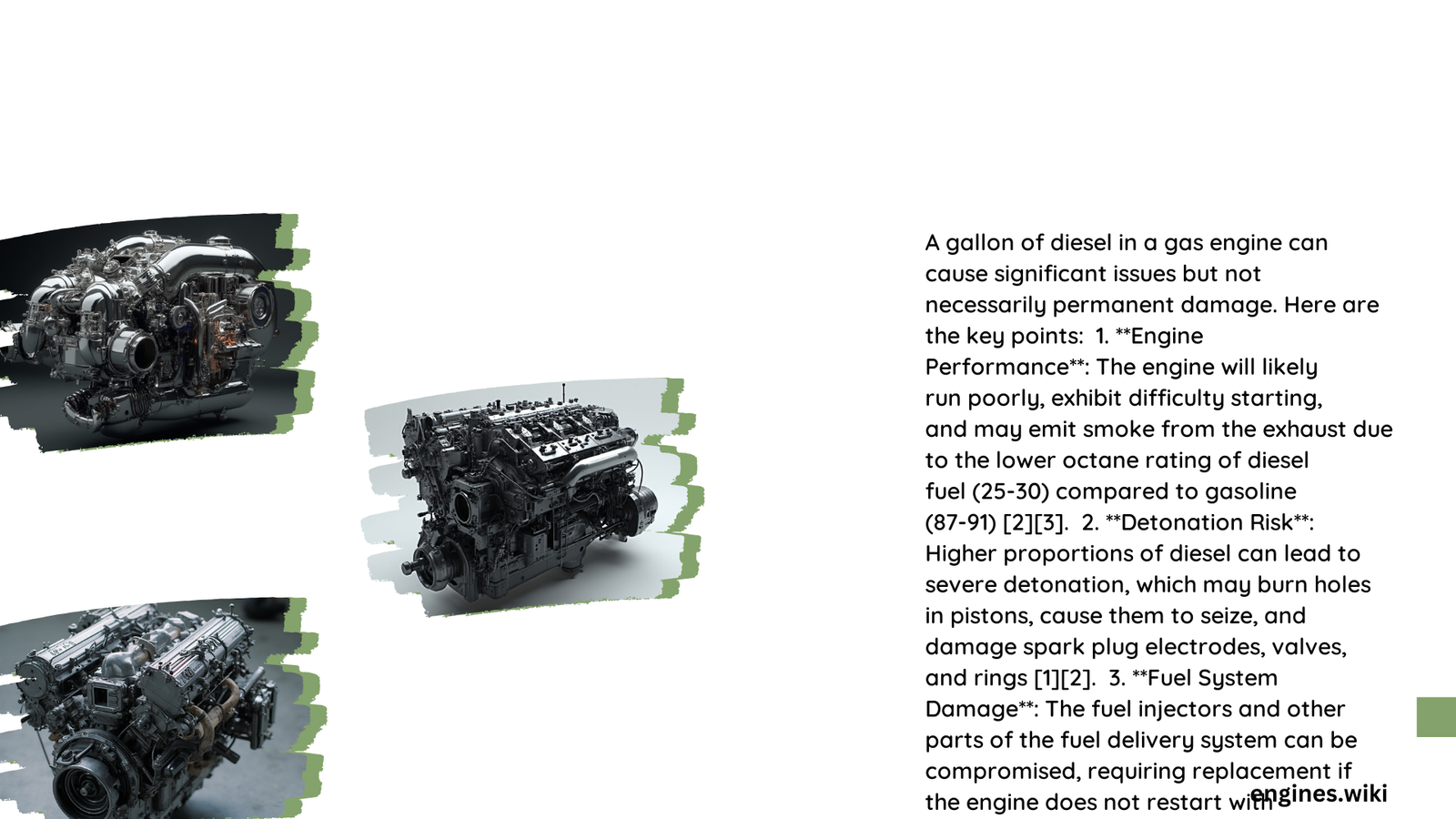Accidentally introducing diesel fuel into a gasoline engine can trigger catastrophic mechanical consequences. A single gallon of diesel can potentially cause significant damage to your vehicle’s engine system, leading to costly repairs, performance degradation, and potential complete engine failure. Understanding the immediate and long-term risks is crucial for vehicle owners to prevent expensive mechanical complications.
What Happens When Diesel Enters a Gasoline Engine?
Can a Small Amount of Diesel Cause Immediate Damage?
Diesel fuel’s unique chemical properties make it fundamentally incompatible with gasoline engines. Even a single gallon can create substantial problems:
Chemical Incompatibility Factors
- Ignition Mechanism: Gasoline engines use spark plugs, while diesel engines rely on high-compression ignition
- Fuel Density: Diesel is significantly heavier and more viscous than gasoline
- Combustion Temperature: Different fuel types require distinct combustion temperatures
What Are the Immediate Performance Risks?
| Performance Impact | Potential Consequences |
|---|---|
| Engine Misfiring | Immediate power loss |
| Fuel System Clogging | Injector and filter damage |
| Unusual Engine Sounds | Knocking and pinging |
| Excessive Exhaust Smoke | Environmental and mechanical stress |
How Quickly Can Damage Occur?
The timeline of potential damage varies based on diesel quantity and engine exposure:
- Initial Exposure (First Hour):
- Rough engine performance
- Difficulty starting
- Potential stalling
-
Initial fuel system stress
-
Short-Term Exposure (5-10 Hours):
- Significant fuel system degradation
- Potential injector failure
- Increased risk of comprehensive engine damage
What Are the Potential Repair Costs?
Repair expenses can escalate rapidly:
– Basic Fuel System Flush: $400 – $500
– Comprehensive Engine Repair: $4,000 – $17,000
– Potential Engine Replacement: $5,000 – $10,000
How Can You Prevent Diesel Contamination?
Critical prevention strategies include:
– Double-check fuel pump nozzles
– Use fuel-type-specific pumps carefully
– Maintain vehicle fuel system awareness
– Educate all vehicle operators about fuel differences
What Should You Do If Diesel Enters Your Gas Engine?
Immediate recommended actions:
– Do NOT start the engine
– Call a professional mechanic
– Request immediate fuel system drainage
– Avoid driving the vehicle
– Document the incident for potential insurance claims
Technical Insights on Fuel System Vulnerability
Gasoline engines are precision-engineered systems with specific tolerances. Diesel fuel’s different lubrication and combustion properties can rapidly compromise:
– Fuel injectors
– Fuel pump mechanisms
– Spark plug functionality
– Overall engine compression ratios
Conclusion

Introducing diesel into a gasoline engine represents a serious mechanical risk. A single gallon can trigger cascading damage potentially requiring extensive repairs or complete engine replacement. Professional intervention and immediate action are crucial to mitigate potential long-term vehicle damage.
